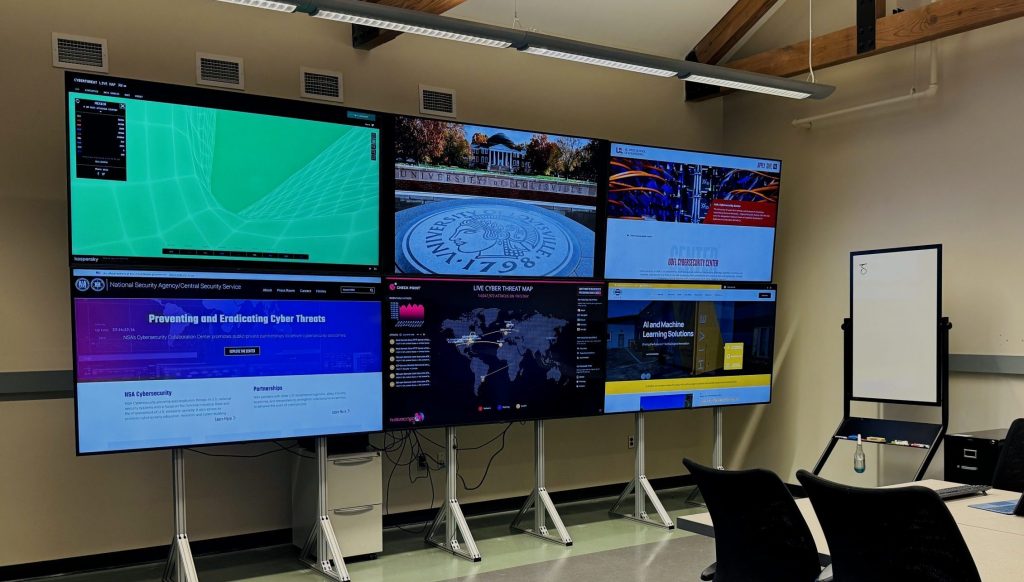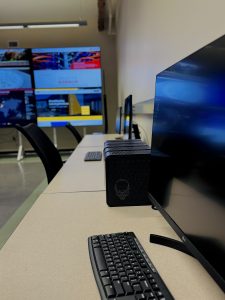
The University of Louisville’s Visual Reality Lab (VR Lab) is a cutting-edge facility dedicated to exploring immersive technologies and their applications across various disciplines. The lab fosters innovation in research, education, and industry by leveraging advanced VR systems and expertise from faculty and students.
1. Research and Innovation
The VR Lab serves as a hub for pioneering research in fields such as healthcare, engineering, and education. Utilizing advanced VR technologies, the lab enables users to simulate real-world scenarios for experimentation, problem-solving, and skill development.- Applications: VR experiments range from medical simulations for training healthcare professionals to engineering prototypes for testing innovative designs.
2. Hands-On Learning for Students
The VR Lab provides a unique opportunity for students to gain hands-on experience with state-of-the-art virtual reality equipment. Students from diverse disciplines collaborate to create VR applications, enhancing their technical skills and interdisciplinary understanding.- Key Features: Interactive workshops, collaborative projects, and VR-based coursework to prepare students for careers in emerging technologies.
3. Public and Community Engagement
The lab extends its reach beyond academia by hosting public VR demonstrations and community workshops. These events showcase the potential of virtual reality to solve real-world problems and inspire curiosity about technology.- Community Impact: Partnerships with local industries and organizations to demonstrate VR’s transformative capabilities in solving practical challenges.
UofL Cybersecurity Lab

1. Research Focus and Achievements
Established in 2008, the lab has pioneered research in areas such as “Artimetrics,” a field dedicated to identifying, classifying, and authenticating non-human entities like robots and software agents. This work is instrumental in enhancing digital security and customization.- Applications: Research outcomes include enhanced techniques for securing networks and devices against malicious activities.
2. Leadership and Academic Excellence
The Cybersecurity Lab is led by Dr. Roman V. Yampolskiy, a distinguished professor with over 100 publications in areas such as AI safety and behavioral biometrics. Under his leadership, the lab has become a recognized hub for cybersecurity education and innovation.- Director Profile: Dr. Yampolskiy has been instrumental in advancing AI safety and cyber forensics.
3. Educational Opportunities
 The lab provides students with hands-on experience in cybersecurity research, offering workshops, collaborative projects, and access to advanced tools. Students engage in real-world problem-solving, preparing for careers in cybersecurity.
The lab provides students with hands-on experience in cybersecurity research, offering workshops, collaborative projects, and access to advanced tools. Students engage in real-world problem-solving, preparing for careers in cybersecurity.
- Student Engagement: Opportunities include applied research and interactive coursework focused on network security.
4. National Recognition
The University of Louisville is recognized as a National Center of Academic Excellence in Cybersecurity Education (NCAE-C), reflecting its commitment to excellence in cybersecurity education and research.
- Recognition and Impact: This designation emphasizes UofL’s leadership in fostering cybersecurity talent and innovation.


